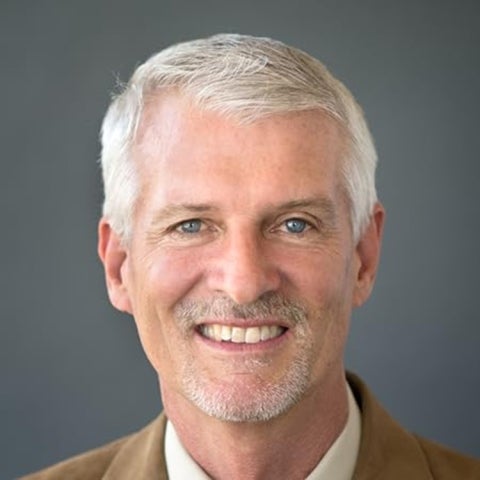
James B. Rawlings receives nation’s highest honor in control systems engineering
UC Santa Barbara professor James B. Rawlings has been named the 2025 recipient of the Richard E. Bellman Control Heritage Award, the nation’s top recognition for career contributions to automatic control.
Presented annually by the American Automatic Control Council (AACC), the U.S. national member organization of the International Federation of Automatic Control (IFAC), the award is considered the pinnacle of achievement in the field. Named for mathematician Richard E. Bellman, a pioneer in dynamic programming and systems theory, it honors individuals whose work has had a lasting impact on the science and practice of control systems.
Of the 47 Bellman prizes awarded since 1979, Rawlings is only the fifth chemical engineer to receive the recognition.
“It is truly an honor to receive the Bellman Control Heritage Award,” said Rawlings, who accepted the award during the 2025 American Control Conference. “Anytime you look at a list of past recipients and see names like Henrik Bode, Nathaniel Nichols, Richard Bellman, Rudolf Kalman and Lotfi Zadeh, to name just a celebrated few, you feel honored and a bit overwhelmed to be listed in their company.”

Richard E. Bellman Control Heritage Award, which he accepted alongside 2006 Bellman
awardee Tamer Basar (left) and Robert Judd, president of the American Automatic Control
Council.
“Jim Rawlings is a true leader in control systems and has made a lasting impact on both research and real-world applications,” said Mike Gordon, chair of UCSB’s Chemical Engineering Department. ”This award is a well-earned recognition of his groundbreaking work over the years, and we’re proud to have him as part of our department at UCSB.”
Rawlings, the Mellichamp Process Control Chair at UCSB and an elected member of the National Academy of Engineering, was cited by AACC for “developing and expanding theoretical underpinnings of model predictive control (MPC) and moving horizon estimation, impacting MPC software usage and applications in the process industries, and mentoring many practicing control professionals.” His contributions have been transformational.
MPC, once an emerging idea with limited theoretical support, today is considered the industry standard for advanced process control, credited with generating more than $1 billion in annual economic benefit for industrial applications.
Over the course of his career, Rawlings has written nearly 250 published articles, and his work has been cited nearly 54,000 times, according to Google Scholar. He has co-authored three lauded textbooks: ”Model Predictive Control: Theory Computation, and Design” (2nd ed., 2020); ”Modeling and Analysis Principles for Chemical and Biological Engineers” (2nd ed., 2023); and ”Chemical Reactor Analysis and Design Fundamentals” (2nd ed., 2020). In addition to his research, Rawlings has delivered short courses on advanced state estimation and model predictive control to audiences at universities and corporations around the world.
His long list of accolades includes election as Fellow of the American Institute of Chemical Engineers (AIChE), IFAC, and the Institute of Electrical and Electronics Engineers. He has received IFAC’s inaugural High Impact Paper Award, the John R. Ragazzini Education Award from AACC, and several of AIChE’s top honors, including the John M. Prausnitz Institute Lecturer, the Warren K. Lewis Award for Chemical Engineering Education, and the William H. Walker Award for Excellence in Contributions to Chemical Engineering Literature.
Reflecting on his path to control theory, Rawlings noted that his undergraduate education at the University of Texas did not even include a control course. That changed during his graduate studies at the University of Wisconsin, where he attended undergraduate and graduate control courses taught by his thesis advisors, Harmon Ray and Manfred Morari, both of whom later received the Bellman Award. Another future recipient, Tom Edgar, chaired the Chemical Engineering Department when Rawlings began his faculty career at Texas. Yet it was the American Control Conferences of 1986 and 1988 that cemented his research direction.
“The 1986 conference was a revelation,” Rawlings recalled. “I had never seen this kind of mathematics at chemical engineering and polymerization conferences. This level of mathematical precision spoke to be. I knew I wanted to try to control research.”
Two years later, at the 1988 conference, he found his focus.
“The leading control theorists at the conference were all hard at work on robust control, but another emerging topic at that time was model predictive control,” Rawlings said. “There wasn’t much supporting theory to speak of at the time, but it was gaining traction in industrial applications, especially in the chemical process industries. So, I decided to work on model predictive control.”
That early decision would help shape the field of process control for decades to come.
As he looks to the future, Rawlings encourages the next generation of process control engineers and scientists to pursue research that has both an impact on control applications and inspires them to build the fundamental frameworks of tomorrow.
“Find problems you can’t wait to solve,” he said, “and create the new fundamentals that explain how new techniques work. That’s where the excitement lives.”




